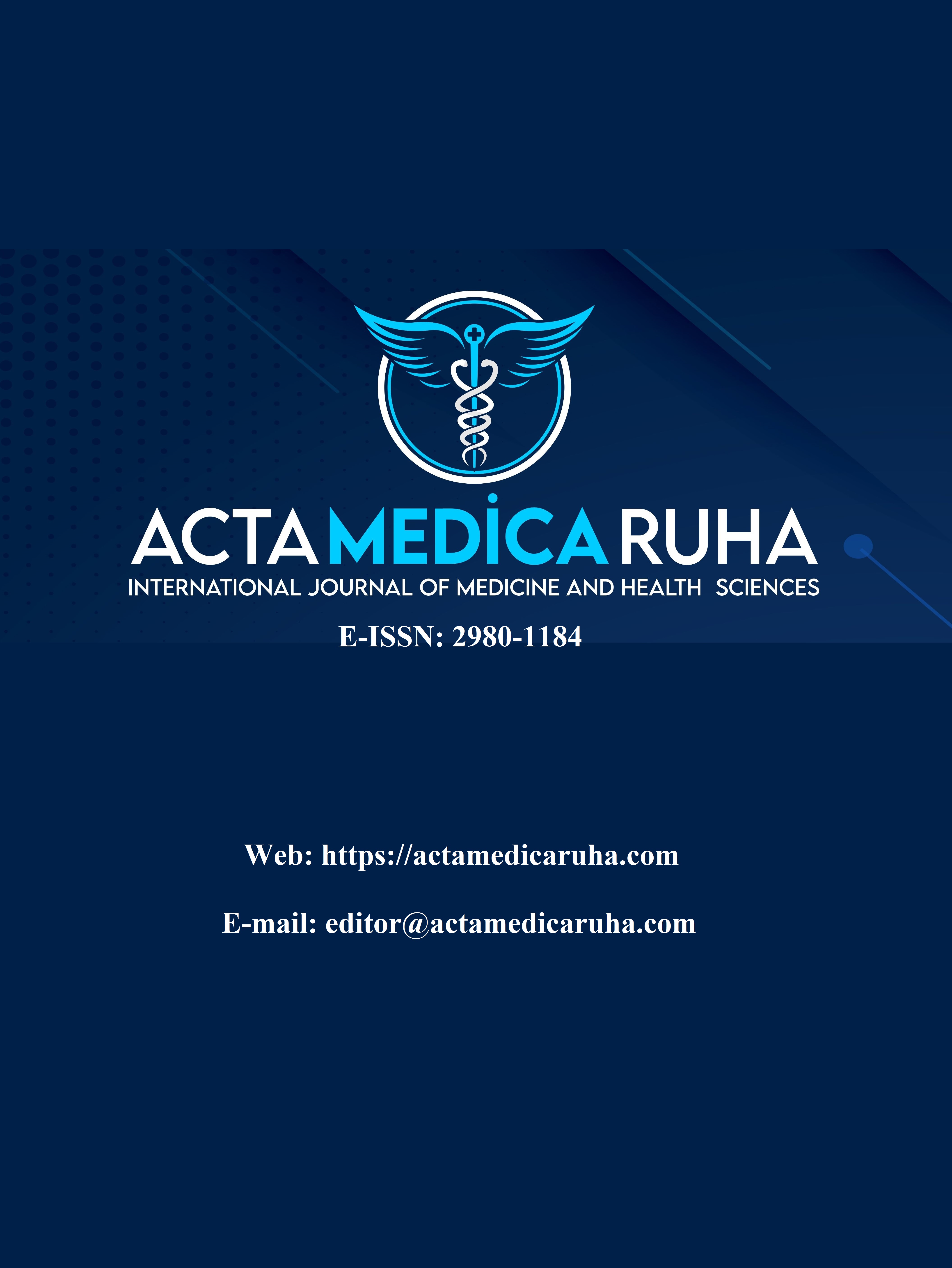The Relationship Between Personality Traits and Pregnancy Adaptation: The Case of Primigravida Pregnant Women
Research Article
DOI:
https://doi.org/10.5281/zenodo.13766957Keywords:
Pregnancy, Pregnancy Adaptation, Personality Traits, PrimigravidaAbstract
Introduction: Adaptation to pregnancy is essential for expectant mothers who will have their first experience. It includes personality traits and thus contributes to shaping the role of motherhood.
Objective: This study investigated the relationship between personality traits and pregnancy adjustment in primigravida pregnant women.
Method: This cross-sectional study was conducted with 280 women in a province in the south-eastern Anatolia region of Turkey between January and June 2024. Participants were selected randomly. The data were collected using the “Introductory Information Form,” “Ten-Item Personality Inventory (TIPI),” and “Prenatal Self Evaluation Questionnaire (PSEQ).” The data were analyzed using number, percentage, mean, correlation, and regression analysis in the SPSS program.
Results: The mean scores of the participants' TIPI sub-dimensions of openness to experience, conscientiousness, extraversion, agreeableness, and emotional stability were 9.62±2.32, 10.89±2.05, 9.52±2.44, 11.43±2.88, 10.51±2.15, respectively. The mean total score of the PSEQ was 178.50±26.54, and pregnancy adjustment was moderate. There was a moderate negative relationship between pregnancy adjustment and openness to experience (r=-0.615, p=0.003), conscientiousness (r=-0.625, p=0.015), agreeableness (r=-0.605, p≤0.001), and emotional stability (r=-0.630, p≤0.001) personality traits. According to the results of the multiple linear regression model, openness to experience (β=-2.718, p=0.001) and conscientiousness (β=-3.35, p=0.004) variables are important determinants of pregnancy adjustment, and these variables explain 27.6% of the total variance in pregnancy adjustment.
Conclusion: Women who are not open to experience and have low responsibility personality traits are at-risk groups in terms of pregnancy adjustment in their first pregnancy.
References
Anık Çankaya Y. The effect of solution-focused approach applied to primigravidas on psychosocial health, fear of childbirth and feelings of postpartum security: A randomized controlled trial. Necmettin Erbakan University Institute of Health Sciences Obstetrics and Gynecology Nursing 2023.
Dursun E, Kızılırmak A. The relationship between personality traits and anxiety levels of pregnant women and their fear of childbirth. Master's thesis. Nevşehir Hacı Bektaş Veli University 2018.
Şiir Dağlar Ö, Oskay Ü. The relationship of personality traits to stress and adaptation to pregnancy in pregnant women. Ankara Journal of Health Sciences. 2022; 11: 1106-120.
Lederman R, Weis P. Psychosocial anxiety, stress, and adaptation in pregnancy: assessment of seven dimensions of maternal development. Springer International Publishing. 2022; 1: 1-50.
Ozdemir O, Ozdemir PG, Kadak MT, Nasiroglu S. Personality development. Current approaches in psychiatry. December 2012; 4(4): 566-89. doi:10.5455/cap.20120433
Hazar S, Nacar G, Timur S, Sinen R. The relationship of personality traits with pregnancy symptoms and health seeking behavior. Bingöl University Health Journal. 2024; 5(1): 82-94.
Gönenç M, Aker N, Güven H, Moraloğlu Ö. The effect of the personality traits of pregnant women on the fear of childbirth. Perspectives in Psychiatric Care. 2020; 556(2): 347-54.
Calpbinici P, Terzioglu F, Koc G. The relationship of perceived social support, personality traits and self-esteem of the pregnant women with the fear of childbirth. Health Care for Women International. 2023; 44(10-11): 1423-37.
Crowley G, Molyneaux E, Nath S, Trevillion K, Moran P, Howard L. M. Disordered personality traits and psychiatric morbidity in pregnancy: a population-based study. Archives of Women's Mental Health. 2020; 23: 43-52.
Sarani A, Azhari S, Mazloum SR, Aghamohammadian Sherbaf, H. The relationship between psychological resilience and coping strategies in pregnancy. Journal of Midwifery and Reproductive Health. 2015; 3(3): 408-17.
Zengin H, Tiryaki Ö, Bostancı S, Çınar N. The relationship between personality traits of pregnant women and their readiness for hygienic care of their ınfants after birth. Journal of Continuing Medical Education. 2021;30(6): 377-85.
Nath S, Pearson RM, Moran P, Pawlby S, Molyneaux E, Howard LM. Maternal personality traits, prenatal depressive symptoms, and postnatal mother-infant relationship: A prospective observational study. International Journal of Research in Social and Genetic Epidemiology and Mental Health Services. 2020; 55(5): 621–34.
Santhi MD, Durga KM, Manjula B, Sathya J. Assess knowledge about physiological and psychological changes during pregnancy and their management in primigravida women. International Journal of Nursing Care. 2018; 6(2): 88-92.
Aydemir H, Öztürk Can H, Tuna Oran N. Culturally based midwifery in the prenatal period the relationship of care and midwifery care with cultural care models. Gevher Nesibe Journal of Medical and Health Science. 2022; 7(21): 49-56.
Başgöl Ş. Determination of the compliance of women with assisted reproductive treatment applications to pregnancy. Doctoral Thesis, Istanbul University Institute of Health Sciences. 2018
Demirbaş H, Kadıoğlu H. Adherence of women in the prenatal period to pregnancy and related factors Clinical and Experimental Health Sciences. 2014; 4(4): 200-06.
F. Faul, E. Erdfelder, A. G. Lang, and A. Buchner. G*Power 3: A flexible statistical power analysis program for the social, behavioral, and biomedical sciences FRANZ. Behav. Res. Methods. 2007; 39(2): 175–91.
Gosling S, Rentfrow P, William S. A very brief measure of the Big-Five personality domains. Journal of Research in Personality. 2003; 37: 504-28.
Atak H. Adaptation of the material personality scale to Turkish culture. Archives of Neuropsychiatry/Archives of Neuropsychiatry. 2013; 50(4): 312-19.
Lederman RP, Lederman E, Work Jr, McCann DS. Relationship of psychological factors in pregnancy to progress in labor. Nursing Research. 1979; 28(2): 94-7.
Beydağ KDT, Mete S. Validity and reliability study of the prenatal self-assessment scale. Journal of Anatolia Nursing and Health Sciences. 2008; 11(1): 16-24.
Soltani F, Maleki A, Shobeiri F, Shamsaei F, Ahmadi F, Roshanaei G. The limbo of motherhood: Women's experiences of major challenges to cope with the first pregnancy. ScienceDirect Journal. 2017; 55: 38-44.
Küçükkaya B, Sarıkaya NA, Süt HK, Öz S. The relationship between body perception related to weight gain during pregnancy and acceptance of pregnancy. Journal of Academic Research in Nursing. 2020; 6(3): 426-32.
Baştarcan Ç, Oskay Ü. The relationship of personality traits on anxiety and depression levels in pregnancy. Black Sea Journal of Health Sciences. 2019; 5(2): 180-87.
Downloads
Published
How to Cite
Issue
Section
License
Copyright (c) 2024 Acta Medica Ruha

This work is licensed under a Creative Commons Attribution 4.0 International License.









